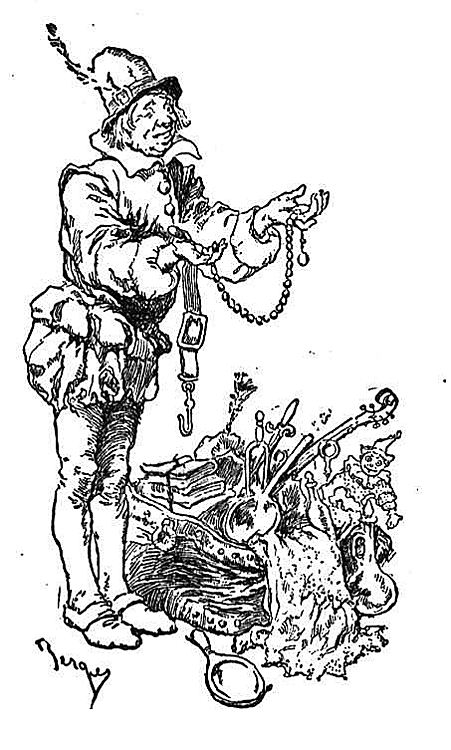


Cost of item:
Skill of buyer:
Reason to buy:
The combination of the buyer's skill and the reason they may buy the items decides how the sale will proceed and help the Judge roleplay the process. In most occasions, the default settings should be JOURNEYMAN skill and either WILL BUY IT FOR THE RIGHT PRICE if sold to someone or WANTS TO MAKE SOME PROFIT if selling at a bazaar or marketplace.
Someone with a NOVICE skill and COLLECTOR reason to buy is someone who has too much money and too little sense. There’s a fool born every minute and he came on the worse minute possible. On the other side of the spectrum, a skilled MASTER who is looking to MAKE A DECENT PROFIT will gouge the seller and has no problem with letting an item go if it doesn’t meet their criteria. They aim to make money, not give charity.
Judge should encourage players to spend time looking for a better buyer, but should adjudicate how that works and how long it will take. It may just happen that there aren't any wealthy buyers in a location or it might take days or weeks better spent getting new treasures.
NPC buyer makes an initial offer to start the transaction. Seller can accept it or counter offer. If the counter offer is within the acceptable range in the table, have seller roll a Personality Dice Check. If seller asks for too much, buyer should let them know they are crazy talking and should take it seriously. If the DC fails, buyer will counter offer.
Buyer's counter offer should be similar to seller's. Example, if seller lowers bid by 50gp, buyer will increase by 50gp. Also, seller’s counter offers must be in good faith (no simply lowering offer by 1gp) for buyer to consider them.
After a certain number of back and forths and DC checks, buyer will stand their ground on the final price, take it or leave it.
| Range | Skill of buyer |
|---|---|
| 1 | Master |
| 2-3 | Expert |
| 4-7 | Journeyman |
| 8-9 | Apprentice |
| 10 | Novice |
| Range | Reason to buy |
|---|---|
| 1 | Wants to make a decent profit |
| 2-3 | Wants to make some profit |
| 4-7 | Will buy it for the right price |
| 8-9 | Desires it |
| 10 | Collector |
IDEAL COST: Everything is worth what the person is willing to pay. The ideal cost is the perfect price for the buyer. Note that this number may be different than the item's base value. Collectors want the item and are willing to pay extra for it. Merchants looking to make a profit aim to sell the item down the road and are not paying full price. The skill of the buyer also has some minor impact on the starting price.
WILLING TO PAY: Everyone has a price in mind but can be persuaded to pay more. This value is the upper price the buyer is willing to pay. They will not pay more than this. (No Timmy, you cannot sell your used underwear for 3,000 GP if you roll a natural 20.) Skill is the biggest modifier here. Expert buyers know enough to not go over budget, whereas apprentice buyers don’t know when a deal has gone bad for them and are known to pay more than they should.
INITIAL OFFER: This is mostly a random percentage from 5% to 65% of the Ideal cost to get things started. No logic behind but can be used to flavor the encounter. A low bid can be treated as the buyer trying to scam, a high bid can be treated as buyer not wanting to mess around.
FINAL OFFER: Everyone has a limit on how long they are willing to spend on a transaction. The final offer is the number of back and forths the buyer is willing to do. After this, they will be done talking and go into a 'take it or leave it' attitude. Both, the skill and the reason to buy affect this number. Expert merchants don't like wasting their time and collectors are willing to negotiate. This is designed to encourage players to haggle smartly as they only have so much time.